How Two Best Friends Went From a Million Dollar Product Failure To #1 on Amazon
Sick of paying for overpriced cold brew coffee from local coffee shops, best friends Alex and Andrew set out to brew their own coffee in their apartment.
What they didn't expect was that it would end up inspiring a business idea.
The duo had the ideal background to get it off the ground running. Combining Andrew's background in R&D engineering and Alex's in consumer research, the embarked on an entrepreneurial journey to create the best cold brew for consumers.
Today, their brand, Bizzy Coffee (for busy people) is the number one seller of cold brew coffee on Amazon.
In this episode of Start Yours, Alex joins us to share their journey to success. Product research and testing aside, he also touches on what it's like to sell on Amazon and provides some tips to rank on the world's largest ecommerce website.
If you're an aspiring entrepreneur looking to create your own product or brand, this is one information-filled episode you won't want to miss.
If you enjoy the podcast, we hope you'll consider subscribing. Don't forget to check out our blog for more juicy content on entrepreneurship.
Short on time? Here's a seven-point TL;DR version of our conversation with Alex:
- Bizzy Coffee is Alex and Andrew's third attempt at running a business together. Their initial two didn't work because they didn't realize the importance of recurring revenue.
- The two criteria they had for their product was that it had to be searchable and consumable.
- Alex's advice is to earn that first buck as quickly as possible because you don't want to spend months perfecting a product only to realize there's no demand.
- People want to be entrepreneurs but they don't have the risk profile so they're happy to live vicariously through you.
- Entrepreneurs can sometimes get stuck thinking that they have the greatest thing and forget to put their consumer hats on.
- If there's an option to put more work into a channel, you will be rewarded by putting in the work.
- You don't wanna have a solution looking for a problem. You gotta have a problem and be flexible in that solution.
Start Yours is a podcast about ecommerce, dropshipping, and all things launching a business.
Join us as we meet entrepreneurs who have gone through the triumphs and headaches of running an online store, and learn how they managed to survive and thrive.



From Middle School Friends to Business Partners
Aleisha: Alex, it's so lovely to talk with you and to learn more about this amazing coffee empire that you have built with your best friend, Andrew. Tell me a little bit about how you guys met and also how it came to be that you are now running this business together.
Alex: Yeah, our friendship actually dates all the way back to middle school. So yeah, we went to... I think we probably met in maybe sixth or seventh grade.
→ Click Here to Launch Your Online Business with Shopify
Aleisha: Wow.
Alex: Yeah, Andrew was a real sharp guy. He is an engineer now, but was always just really good at Math and Science, and so I'd always try and partner up with him, basically. And then we went to the same high school and then went to college in the same city but different universities.
So we both were quite into exercise and he's a mechanical engineer, and my dad was an engineer. And I'm a little mechanically inclined but I got really into motorcycles. And because of Andrew's mechanical engineering, we kinda just really bonded over that in college, and exercise and fitness.
And then actually after college, we both worked in the corporate world. I was doing demand forecasting, so very technical, statistical analysis on supply chain, and he was working in fluid systems as an R&D engineer. And actually right after college, we both moved back in with our parents to just get our feet back on before actually moving together in Minneapolis, Minnesota.
And we just would tinker at the end of the day.
We both had our jobs and had, what we like to say, our quarter-life crisis, and because we are both generally handy and liked products and things of that nature, after work, we'd hit the gym and come up with ideas and things we wanted to tinker with, and then we'd get back from the gym and just kinda start making stuff, and then that just was initially how it started.
Aleisha: What's interesting is when you said that when you were in middle school that Andrew was really good at Math and Science. And that you sort of... You knew that. Do you think that's translated now, when you're running a business, when you find partnerships, they're like, "I'm really good at marketing, I'm good at writing copy, and the other person is good at doing the spreadsheets."
Do you think that's been a thing that's carried on through your friendship and now you're business partnership where you know each other's skills and you've been able to bounce off that and allocate certain tasks or bits of the business to support that?
Alex: Yeah, absolutely. And we realized that very early on in our friendship as well as in our careers. And so I'm generally pretty outgoing, a social guy, a salesman by trade, and an ideator, so I'm always thinking of ideas.
As a great example, so I got my motorcycle license the day I turned 18 and was just willing to go in, none of my friends had them, and then Andrew got one after... I convinced him, but he saw me and how to use them and how to safely ride, and then he would jump in.
And so as we progressed into our careers and specifically into entrepreneurship, we were very conscious about having very clear roles where I typically will start things and come up with the ideas and validate the market opportunity.
I have a background in finance and analysis, so I'm able to quantitatively make sure something is gonna work.
And then Andrew with his engineering and high level of detail will then pretty much execute it and of course, at the same time, make sure that the ideas that I'm saying are amazing, are actually feasible.
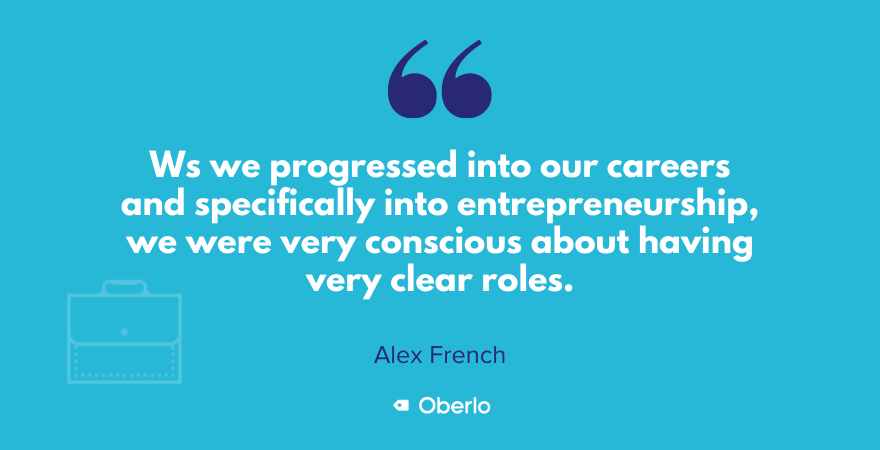
Starting Bizzy Coffee
Aleisha: Sure, and that is important, I think when you are in a partnership or any sort of business arrangement that you've got someone to bounce off, but also someone that says, "Hey, hey, hey, this may not be financially viable,” or, “This will never work."
Yeah, so let's talk a bit about the business and the business of coffee, Bizzy Coffee. Every time I read the brief, I am a real coffee nut, and every time I read your story, I'm just like, "Give me a cup of coffee, give me a cup of coffee." It really triggers something in me.
Let's talk about how you decided this was the idea 'cause you talk just then about bouncing ideas off each other. Like the cold brew, actually, it's really interesting. I live in Australia, and cold brew is not as popular here as it is in the States. There's certainly a market here, you could come and take over.
Tell me a little bit about how you came to be in the coffee business because clearly from what you've just said, neither of you were in the coffee business prior to running this enterprise. So how did you take the leap from engineering and data and statistics to running one of the most popular cold brew companies out there.
Alex: Yeah, so it's important to note that this is our third go at running a business together. So that helped us decide what type of product and category 'cause when we started, we're like, "We're gonna just make something awesome and it's gonna work and then people are gonna buy it, definitely,” and we had no idea about how difficult it is to educate consumers and the importance of recurring revenue or customer retention.
So the first business that we did was a snow sports accessory and it was this widget, for all intents and purposes, and you would buy one of them and it was indestructible. So we had this small product in a small niche that someone would only buy once and it was $20. It was very inexpensive.
And so through that failure, through a multitude of reasons, we realized that there were two things that we wanted to look for and be sure were gonna be in our next business. And they were very basic.
One of them was search-ability. So we wanted to make sure that people were just literally searching for it on the internet. We didn't wanna have to educate 'cause that was just so expensive and challenging. And then the second was a consumable good.
So our objective was to have someone search for the product, get them to buy it, and then we knew we were good at making good products, so then we could just continually sell that product over time to them. So we kind of had that in our mindset of like, "This is this internal Venn diagram of a business that we want to be a part of."
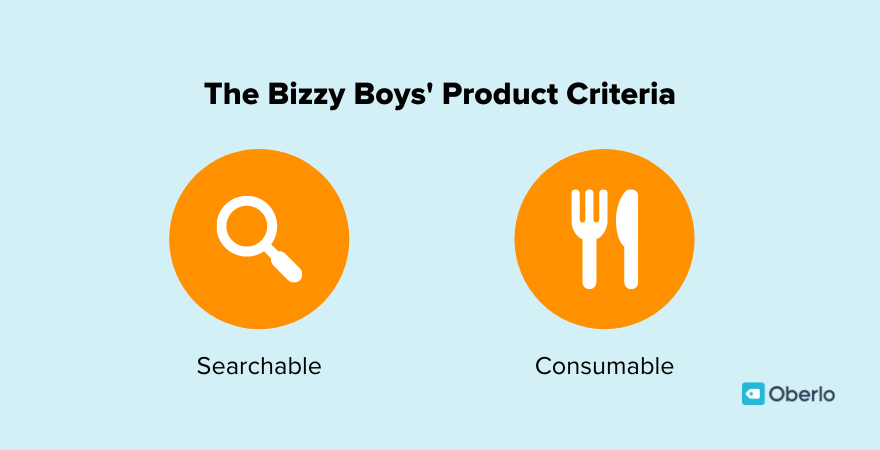
And so we had this idea, we had a second business, which was in the group fitness industry, it was moderately successful but had no scale so we ended up winding that down and we're looking for the next "big thing" that we were gonna work on on the side.
And so I was actually working at General Mills, funny enough, as a marketing associate on the Cheerios brand, and through that, I had access to all of the sales data, there was this thing called Nielson, which tracks every purchase of every product out of every grocery store, or convenience store in the country.
It's totally crazy. So I had access to this data and I'm in the food industry, and as I mentioned, we had done this group fitness thing, and we were training for this crazy 24-hour obstacle race, so we were really, really into health and wellness and nutrition.
And so we're like, "Okay, food that's consumable." And people are searching for better-for-you options because the food industry was changing and I was learning that, well, being at General Mills.
So we were like, "Okay, food." This checks our macro box and we love food, so this is something that we would actually like to run a business in. And then we were actually making cold brew coffee ourselves just because we liked the product.
And so kind of the story is, we were training for that race and we weren't sleeping very much and needed a higher-caffeine, lower-acid product because Andrew has acid reflux. We're roommates, we're generally frugal, so we wanted to bulk buy everything. And so we were drinking the product and it was hitting on all of these macro trends that we were seeing in the food industry, primarily lower sugar, fewer ingredients, plant-based.
And so in our minds, we were looking for energy and we wanted to be healthy and sugar-free, and cold brew coffee was just this perfect option.
And then it checked our box of… It was kind of new-ish. So this was like 2013, 2014. And so people were searching for it like crazy, like, “what is cold brew coffee,” “how to make cold brew coffee,” “cold brew coffee recipe,” and they were getting millions of searches a month.
So in our mind, we're like, "Okay, this is consumable. People are searching for it." We believe that it was the future of coffee because it was kind of… All of the millennials were drinking it, and again.
Aleisha: Yeah. It's quite popular.
Alex: It's so popular. Every coffee shop in the country has it, and the beautiful thing was, we didn't have to really educate the consumer because the coffee shops were doing it. We just had to be where they were gonna buy it where they wanted to make it. And then that really just became our strategy.
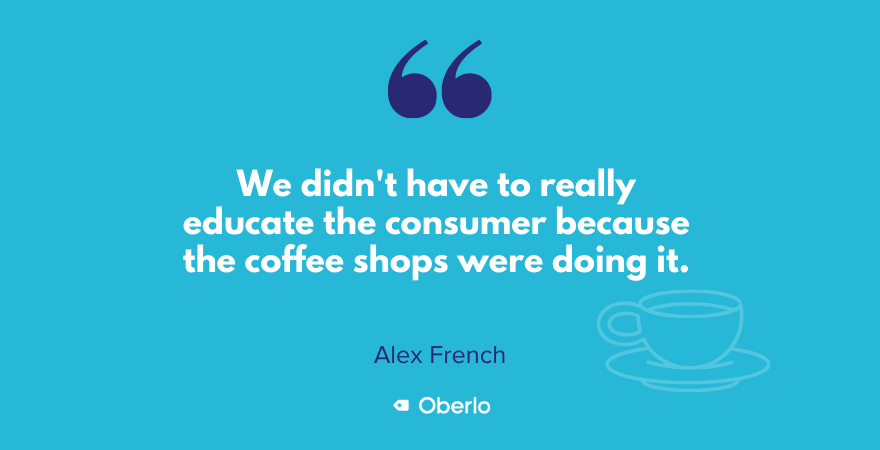
Get That First Buck Quick
Aleisha: So tell me... I love that point, and let's just really reiterate for people who are listening, I think who are maybe considering jumping into an enterprise or running a business or finding that product, and I think it's so important that you have said, "Hey, we didn't just see a corporate coffee in a coffee shop and decided to then go and just make it ourselves."
Like you've gone on this journey, you've done a lot of research, clearly looking at the search terms and the numbers, it's something that you wanted to put your time and energy into. But also as you said, this is a pre-existing thing that people were nuts about already, so why not find a way to deliver it to them that isn't a conventional way of going to the coffee shop?
So I think it's just really important if people listening and they've got this idea potentially for a product to take that time and do the research as well, which is an obvious thing to say, but a lot of people get excited 'cause it is exciting when you come up with the business idea, you just wanna go and do it, but also, that can be pretty dangerous.
Alex: Well, and that's exactly what we did with our first business, I had this personal problem of riding the chairlift and I was like, "Oh, everyone has this problem. Let's go solve this problem".
And what we should have done was, "Okay, how many people snowboard in the world and how many people are gonna buy this thing?" And, "Oh my gosh, there are only a couple of thousand potential customers, and this is a $20 item. I don't think it's gonna be that big of an opportunity."
And we didn't do that. We're just like, were curious, would people pay for it? Well, yes, some will. But not enough to make it a sustainable business.
That's where that whole consumable thing from our perspective came into play, but doing the research is really important. But I think the most important thing is you can do research until you're blue in the face, and I really learned this in my marketing role there, is that people lie on surveys all the time.
It's disgusting how inaccurate survey information is.
And so what we always do and tell people is like, people vote with their dollars. There are all these stories of, “Everyone said it was a great idea,” and then I'm like, "Awesome, ask for $10 for it." And you'll see if it really is a good idea or not.
And so I always tell people, get to that first dollar as fast as you possibly can, 'cause the last thing you wanna do is spend six months, 12 months, 18 months perfecting a product, only to realize that no one even really wants it.
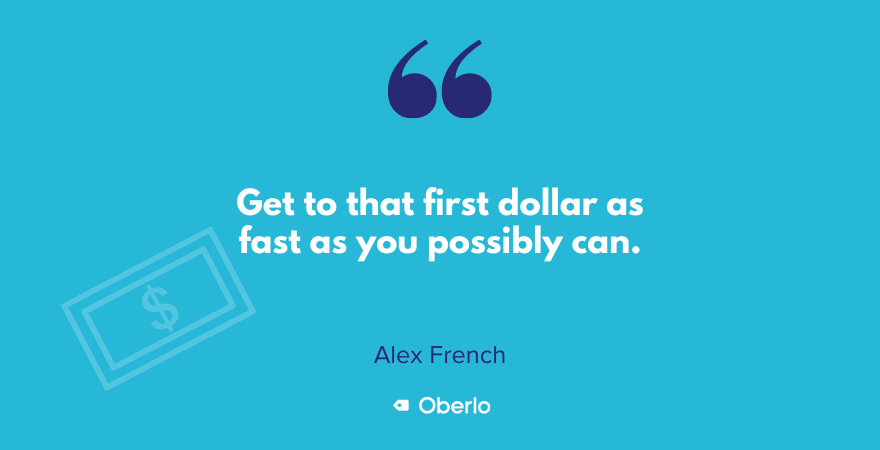
Developing the Product
Aleisha: Oh my gosh. And it would be devastating, I know people do it all the time, and as you said, people that start multiple businesses, these are the lessons that you learn along the way. But also, it really can really hurt when you think, "I thought this is it, this is the thing, I really thought this is gonna be it." And then it isn't and you got to start again.
Let's talk a little bit about when you started to develop the cold brew. Where did you find the beans... I wouldn't even know where to begin, especially with consumables. I know our listeners would say, I go to Alibaba or I'd find... If you're making a physical product there are certain means and ways to do it, but I've never thought about a food-based product.
How did you start that initial journey to make sure what you were going to be selling was premium and... Yeah. Starting the tasting phase, I suppose.
Alex: Yeah, so, fortunately, Andrew, my business partner is very technical and he is very detail-oriented and he loves food and beverage. So honestly, all we did is we went to our local grocery store and there was a co-op, so it was kind of like a crunchy store if you will, where they had all these exotic coffees.
And we pay like retail prices and expensive coffee, like $10 to $15 a pound, and we would just cold brew everything. And there's this thing called the Specialty Coffee Association of America, which is this organization and they have this thing called the flavor wheel. And so we would just try countless types of coffee and just see what we liked the most, and we looked at every variable.
So we actually took a coffee class from a local coffee shop. They taught us what makes a good cup of coffee. And there were really a couple of variables.
There's essentially grind size, there's temperature, and there's brew time.
And so we played with those variables to make sure that our extraction was good, so it wasn't over-extracted or under-extracted and that's just a simple equation.
And then there's the sensory side, which is, do you want a Guatemalan or do you want a blend, or do you want it to be light roast or dark roast? And so we tested just every one of these variables, so we were trying our competitors, we were trying our products, we just wanted to cold brew anything we could get our hands on, and then we would document literally everything.
And then we took the next step and we thought that we had created something that we personally loved, and then what we did is I actually hired my co-worker who was in a thing called consumer insights, where what they do is they gain insights from consumers.
And she held a formal taste test where we built out that flavor wheel, as I mentioned, we brought in, I think it was maybe ten different blends and roast profiles, including three of our competitors, and seven of the ones that we had made, and we just asked them to rate them. Simple stuff. One to five. What do you taste? And what do you like and what don't you like?
And what we learned just through most people's taste buds, is that when it comes to cold coffee and cold brew specifically, they wanted it to be kind of chocolatey, caramelly smooth with a little bit of roastiness to it.
And so we said, "Okay, these are the flavor profiles that people want." And then we just went back into our notes and we said, "Okay, which origins and roast profiles would create that flavor note?" And then we just... That was it, and that became our number one primary blend. And so that's how we found the initial flavors.
We just went to our local shop and asked people what they liked.
And then as we looked to commercialize the product, we just hit Google and we found large coffee roasters and said, "Hey, can you source these beans. Can you grind them to the spec that we found worked best, and can you get the sizes that we need?"
And then Andrew knew about fluid systems in brewing. He was a beer brewer in college, so he had an understanding of how to brew stuff and clean the liquids. And so we basically specialize in the brewing and then now have a really good understanding of which origins and roast profiles create the flavors that we're looking for.
Aleisha: Your ability, I think it's really interesting to see how much of your experience. I love that Andrew is a homebrewer and understood that. But the fact that you... And it's a hobby that has now become something that's really impacted on your primary business.
I just wanted to say that your skills in that area, I think people should really remember that they can tap into this stuff all the time. I use skills that I've had for 20 years and thought that would never come in handy doing something at college or whatever, and I think, man, actually, I probably learned more from my hobbies than my actual education. But don't tell my parents.
Alex: Well, and even things like most people when they're starting out in entrepreneurship, they'll do it as a side hustle. We certainly did. And like when we did our first business, I was so scared 'cause I had a corporate job and I didn't want anyone to know that I was working on this side project 'cause I thought that I was gonna get fired or something.
But what I learned when I was at General Mills… So if anyone listening is in the corporate environment, people really want to be entrepreneurs but they typically don't have the risk profile, but they wanna live vicariously through you.
Aleisha: Yes.
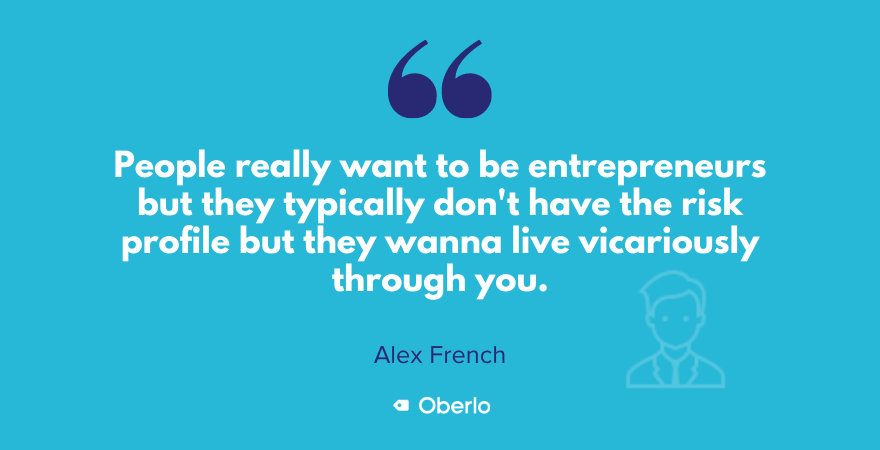
Alex: So when I was at General Mills, I would ask everyone. I'd say, "Hey, I'm working on this coffee thing. Taste it." And, "Hey, I got this name. What do you think?" Or like, "Hey, I'm working on this packaging or this label design." I'd go find the packaging and label expert, and I'd say, "Hey, what do you think about this?" Oh, I need to work on my go-to-market strategy, okay, go to the digital guy.
And I would just ask everybody for help, and they would be so willing to because again, people, especially in a corporate environment, generally, people all wanna run their own business, but they have the golden handcuffs or they just don't have the risk profile.
But they will gladly help you and make sure that you can be successful because they get some fulfillment by knowing that they helped you.
Marketing the Cold Brew
Aleisha: Tell me a little bit more about your marketing. So you've created the product, you've gone through the wheel. You've got the perfect flavor. You know what you're doing, and the branding as well with Bizzy is just really nice.
Is that something that you knew straight away how you wanted it to look and how you wanted the marketing to hit us with the style, and it's really... I don't wanna say really trendy 'cause it's something an old lady would say. But it's really fashionable. It's really trendy.
Alex: Yeah, we had an idea. I was in marketing and a lot of what my job was, honestly, was I was looking at the packaging. And so, I'd seen hundreds of packages. And in my mind, we came up with the name ourselves, and I'm not a graphic designer, so we didn't create the logo or anything.
But in my head, I think it's important to... Every business should solve a problem. Problem-solution almost always prevails even in the food industry and I wanted the name to describe the problem. And, for us, making cold brew takes 18 hours. Most people are too busy to wait 18 hours for a single cup of coffee. And so, we had that as our general idea for the business is, our consumers are busy. Busy coffee for busy people. So we wanted it to be bold and clean and simple, and we wanted it to pop because, in our industry, our long-term goal is to get into every grocery store in the country.
And the saying is you have half a second to capture someone's attention on the shelf.
And so, we wanted to make sure that it was crystal clear what the problem was and what the product was. And so, we did think about that as we were developing the packaging, for sure.
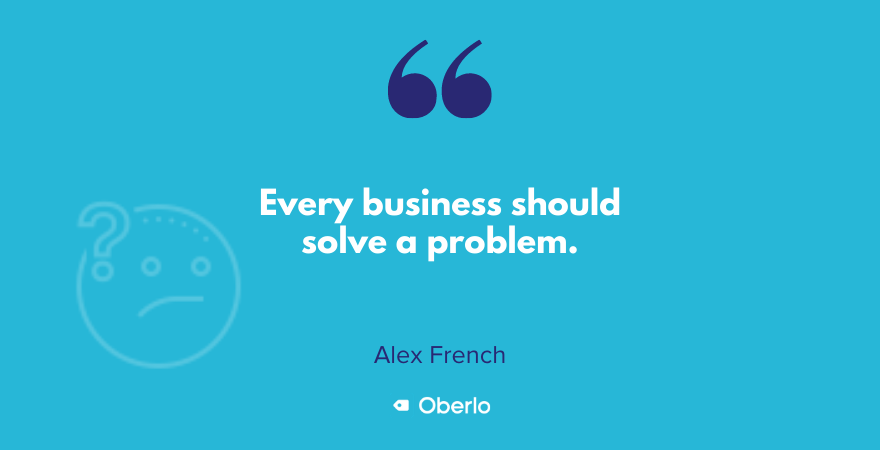
Distributing on Amazon
Aleisha: So you have spent 25 consecutive months as the number one ranking product in your category on Amazon, and we haven't talked... Congratulations, by the way, that's huge. We haven't talked much about Amazon at all as a marketplace on this show, and I'm really interested in how this became your primary marketplace for distributing your brand.
What was it like when you first joined Amazon? 'Cause I think a lot of people find it quite... It's quite overwhelming. Listing your products can be a bit of a ball, like, I would say. How did it become your number one marketplace? It is your number one marketplace for your business, isn't it?
Alex: Yeah, it's over half of our business still to this day.
Aleisha: Wow, amazing.
Alex: So it is big, and it's one of those… Necessity is the mother of invention, they say, and we just couldn't get into stores with the product. No one would take it. And so, honestly, we just had to launch on Amazon 'cause it was the only place we could make money right out of the gates.
I won't get into the set up of the items and the products, there are tutorials and things of that nature, and how to do that. But the most important thing to note once you're set up is that, as I kind of led, that we wanted things that were searchable and Amazon, it's a search engine and people have their credit cards plugged into it.
And that's really the most important thing to think about, and as entrepreneurs, we get so stuck thinking that we have the greatest thing and we want it to be a certain way, but we forget to put our consumer hats on.
We all shop online. We all would be like, "Oh, I'm not gonna buy that because of X, Y, Z. There are no reviews there or that picture looks like trash, or it doesn't even talk about what's in the bag."
And so, we just wanna make sure that people understand that it is a search engine and people are there to search. So as long as you have that understanding, you're gonna be far ahead of everybody else.
And so, we wanna make sure that people, when they're searching for products, that we are there every single time because I know if someone's searching for cold brew coffee, they are going to buy cold brew coffee, and if someone's gonna be searching for a cold brew coffee maker, I know even with more certainty that they're gonna buy a bag of coffee that's specific for cold brewing.
And so, as an example, I put myself in the consumer journey, and in my mind, I think about someone trying cold brew for the first time at a coffee shop, they say, "Wow, this is five or six dollars. This is crazy over-priced. My coffee takes seconds and costs pennies to make at home. I'm gonna make it at home."
And they go to Amazon and they say, "How to make cold brew coffee." And boom, I have to be there. And as long as I'm there, I may get that sale because we've done a great job of making the brand very crystal clear. It says cold brew on the front. We specialize in it. We focus on making sure we have amazing reviews. We have all the keywords dialed, again, there's an algorithm that shows your product, and there are certain things that matter. We think about this in all marketing vehicles.
But if there's an option for you to put more work into that channel, you will be rewarded by putting in the work.
So if it says you can add 150 keywords, add 150 keywords. If it says you can have seven pictures and two videos, have seven pictures and two videos. If there's additional content you can add called EBC, make sure you add that, and then you will be rewarded.
They even have these things like posting that's kind of like Instagram and we're doing that stuff too. We're just repurposing our existing content and putting it on there. And as again, as consumers, when you're going to Amazon or another marketplace, you're gonna maybe look at three to five items and you're gonna just compare them against each other, and whichever one looks the best and they put the most work into and it's the most relatable, you're gonna buy that one.
And for us, knowing that our product is consumable, once we get that first order is when the work really begins. And now, we wanna make sure that we're sending email follow-ups, we're capturing their email address… It’s a huge focus for us now, to make sure that we can continually remarket them and keep them in our purchase funnel.
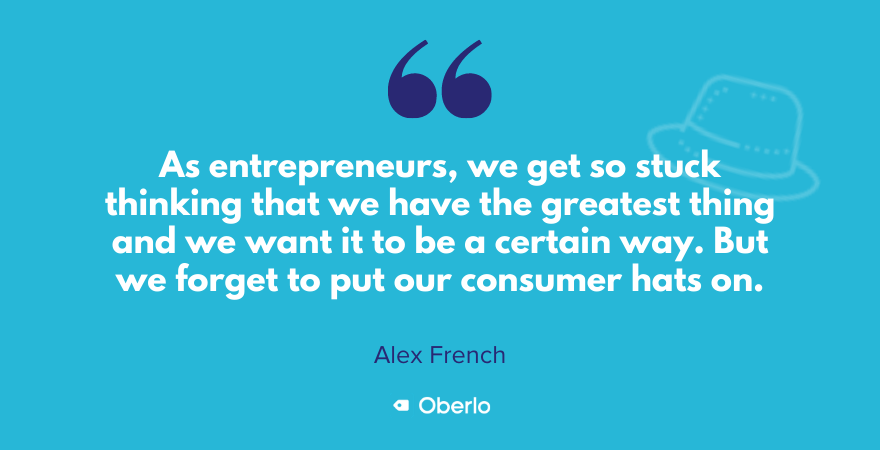
Ranking on Amazon
Aleisha: Yeah, what's great, I suppose, is that you know that this is a product that people are going to keep coming back for because as... Listen to me earlier, I'm addicted. I love it. I think about coffee too much of the day.
But it is something that people also want to get in, I suppose, a regular buying pattern, which is a great place to be as a business owner, I suppose, when you create something that someone wants in an ongoing way. It's fantastic.
With Amazon, I just wanna go back a little bit to the SEO part of it 'cause I think it's so important. I'm also on Amazon. I've got a side hustle and I'm an Amazon seller and really into the seller community, and I think there are lots of very helpful support forums as well that you can go to as you said with the listing and going through and making sure you're making the most of your space. Do you spend a lot of money in the advertising, internal Amazon advertising world?
Alex: It is. Unfortunately, Amazon has turned into a pay-to-play game.
Aleisha: Certainly, yeah.
Alex: And so, we've tested... 'Cause our goal is to not pay for the sale. We wanna show up number one search ranking and the product, and what we found is when we turn off our ads, even though our sales are still strong and we are the number one bestseller, what do you know, our search ranking drops to 10, 20, 50.
And then we turn our ads back on and what do you know, we're back up to number one organically ranking. So when it comes to SEO, our strategy is, we always recommend starting with an auto-campaign, which basically just puts your product on a million of other keywords and products. You can then download that report and see what worked, whether it was a competitor or they searched for us, course ground organic coffee.
And then we'll take those words that converted and make sure that we have them in the backend of our profile and then in the frontend as well, to help us organically rise up. But we do, certainly, we do the banner ads. The second they launched their video ads, we started doing those because, again, we believe that when they offer those things to you, that's a signal that if you do them, they're gonna give you more favorable results and keep you back on that number one spot.
And when you're in an ultra-competitive category like coffee like we are, we wanna make sure that we leverage every kind of option that we have there.
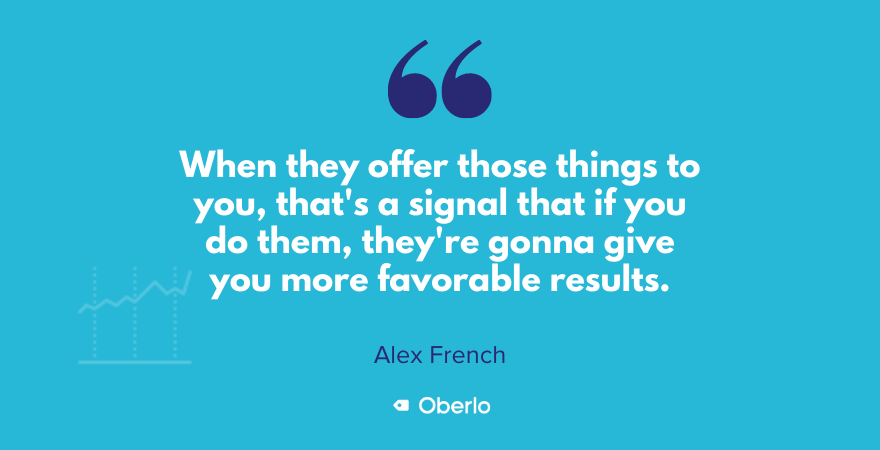
Tips for Entrepreneurial Success
Aleisha: It's such a good tip. If they're offering, they clearly want people to use it, and if you're also the first in the game to do it as well, if they're offering something new, you're gonna get the most exposure. That's a really good tip.
I love that you have said, "You can't fail unless you quit." I really think that's such a great thing to remember 'cause I know a lot of listeners run dropshipping stores and do ecommerce businesses, and sometimes you start something, as you've both experienced in your careers, that doesn't necessarily work, but you gotta pick yourself back up and keep going.
What are some of the lessons that you can share with our listeners about getting to success? You've got millions of dollars of fantastic coffee brewing success under your belt. What are things that we should remember when we're launching businesses and hopefully when they get to where you're at?
Alex: Yeah, I think the most important one, and we have done this tried and true, we've failed so many times and this business even is, it's very important to be consistent in the problem you're trying to solve, but being flexible in the way that you solve that problem.
And, so, as I mentioned, our goal was people are too busy to make cold brew coffee, and there are many, many, many solutions, and we just tried... I think we're on our, maybe sixth or seventh iteration of our product formats, and that sixth or seventh iteration has now worked, where the first five did not. So I think that is so important to...
You don't wanna have a solution looking for a problem. You gotta have a problem and be flexible in that solution.
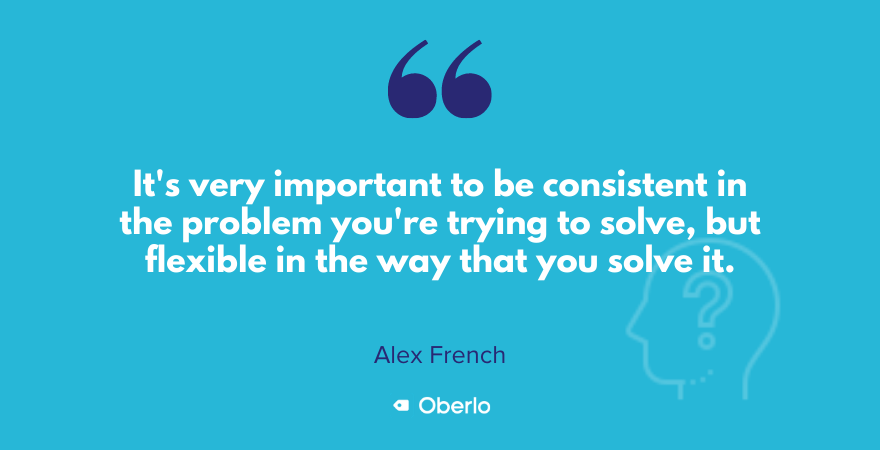
Aleisha: Yeah, that's great. And do you have a book or a piece of media or something that you return to over and over again or something that's really been impactful in your business running career or just something that you would recommend that our listeners would read or watch that would encourage them?
Alex: Yeah, one of my favorites is Never Eat Alone. You cannot be successful by yourself, and I go back to it probably every six months to just remind myself, 'cause you get so bogged down in the day-to-day of running your business, you just don't talk to anyone, and I just always have to remind myself that, "No, you gotta get out and you gotta socialize with people."
And that's what's gonna get you to be more successful, is finding those peers and those mentors. So that's probably my number one book that I go back to year and year, every time.
Looking Ahead
Aleisha: And what a great time to read that book now, especially with people going through various stages of lockdown and feeling alone, and it's something that I think a lot of us as remote workers as well, you forget that that's a really important part of your day. So yeah, fantastic, really looking forward to reading that myself.
Alex, it's been so interesting and I'm really happy that I've shared this time with you, and also thank you for sharing some of the insights into building your business. Before we go, tell me what's next, what are you going to be working on? Do you launch new products regularly, or is this something you found your thing and you're just barrelling ahead?
Alex: We certainly have two things that are working very well. And so, one of them is a liquid product that we sell into grocery stores, and we're looking to get into all of the grocery stores.
Aleisha: Nice.
Alex: We did just launch, again, I'm big on consumer insights and listening to the consumers and being flexible in the solutions, and so we did just launch a new product called a pitcher pack, which is essentially a giant teabag to make cold brew in. And we're launching a bunch of new flavors with that here in the next probably six weeks, so that's what's up on the horizon next for us.
Aleisha: That's really cool. I love it. And I suppose the pitcher pack, the fact that you're the big teabag thing as well is great 'cause you don't have to... It's not messy. You just put it in the cup, put it in the... Good. Now, I'm gonna go and brew a cup of coffee. Not yours, unfortunately, but I will enjoy it and think of you.
Thank you so much, Alex, for taking part in the show. If people wanna learn more and purchase some coffee or just Amazon stalk you to see what you're doing and what's working for you, where can they head?
Alex: Yeah, we are Bizzy coffee, and that's B-I-Z-Z-Y. Either find us on Amazon or bizzycoffee.com. Just remember: busy coffee for busy people.
Aleisha: I love it. Thanks so much again for your time and yeah, it's been great chatting with you.
Alex: Oh, it was a pleasure. Thanks so much for having me.


